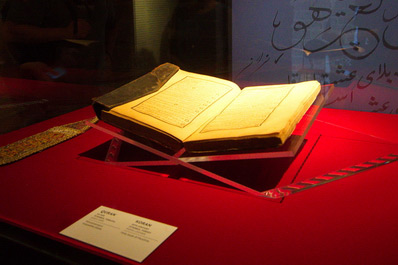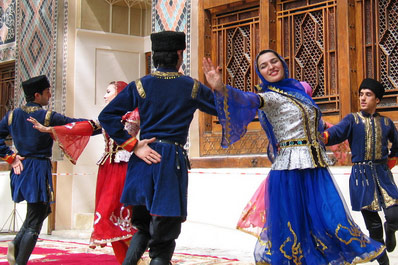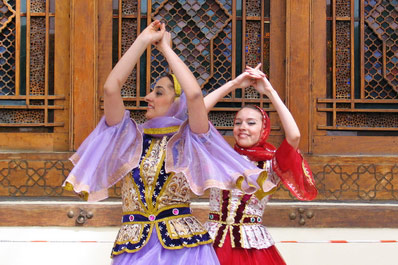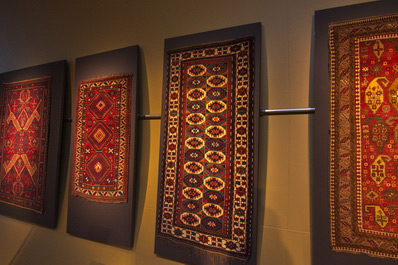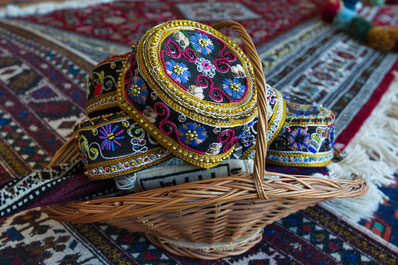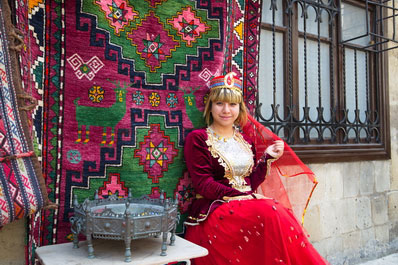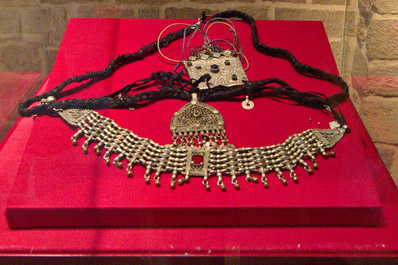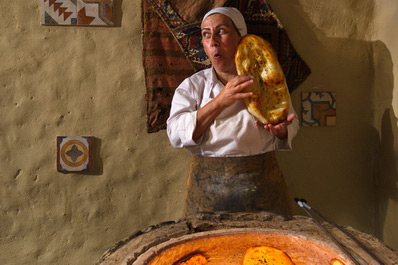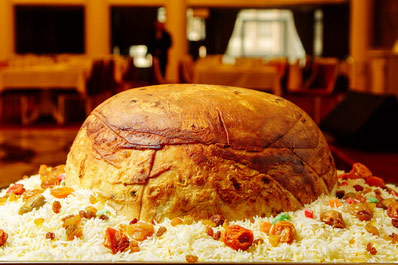Culture of Azerbaijan

Azerbaijani culture is a rich tapestry of the people living in this country, including music, literature, dance, songs, artistic creativity, crafts, traditions, customs, and more.
Azerbaijani Literature
From ancient times, Azerbaijan has a tradition of oral literature, including legends, epics, and fairy tales. One of the oldest and most renowned is the epic of Dede Gorgud, first mentioned in the 11th and 12th centuries, which includes stories and musical compositions.
Also popular are the humorous and wise tales of Hodja Nasreddin, a folklore character who critiqued the faults of high-ranking officials.
Written literature in Azerbaijan began in the 14th and 15th centuries, marking the start of national poetry. Poets like Nizami, Fizuli, Nasimi, and Hasanoglu are known well beyond Azerbaijan. Popular poetic forms include goshma, ustnamname, and gyfilbend, with styles such as divan and gerayli being common.
Azerbaijani Fine Arts
The earliest drawings in modern Azerbaijan date back to prehistoric times, as evidenced by petroglyphs on the rocks of Gobustan and Absheron. These images depict various scenes related to life, hunting, and animal husbandry.
Important among these ancient artworks are patterns that adorned pottery and metalwork. Artifacts such as bronze dishes, gold jewelry, and ceramics showcase artistic expressiveness and technical mastery.
The city of Sheki preserves beautiful examples of wall paintings in the 18th-century Palace of the Sheki Khans. From the 14th to the 16th centuries, the work of Azerbaijani miniaturists influenced miniature painting and book graphics throughout many Eastern countries.
In the 19th century, artists like Mirza Kadym Iravani and Mir Mohsun Navvab gained recognition both within Azerbaijan and internationally.
Azerbaijani Music
Azerbaijani music is a vital part of the cultural heritage and helps illustrate the history and traditions of its people. You can hear music at all sorts of celebrations, from family gatherings to national festivals, enchanting even those unfamiliar with Azerbaijani culture.
Primarily, Azerbaijani music includes the art form known as ashug, which blends poetry, singing, instrumental music, and dance and has been cherished for centuries.
Mugham is another traditional musical form in Azerbaijan, a vocal-instrumental genre where singers discuss eternal values while playing national instruments.
Azerbaijani Dances
Azerbaijan's national dance, yalli, is so significant that it's recognized by UNESCO. Other traditional dances are named after plants or animals, like the violet (banevshe), wild poppy (lale), or gazelle (jeyrani).
Azerbaijani Applied Arts
Azerbaijani carpets are renowned examples of the country's applied arts. Traditionally, carpets are woven by hand for significant events like weddings or the birth of a child and can take months to complete.
Mother-of-pearl inlay is another popular craft, used to decorate items like Quran cases, wooden mirrors, and musical instruments.
Copper craftsmanship in Lahij is famed throughout Azerbaijan, attracting visitors looking for unique, hand-hammered copperware.
Azerbaijani Clothing and Jewelry
Azerbaijani national clothing and jewelry reflect the country's history and culture of Azerbaijan.
Traditional clothing from regions like the 17th-century silk center of Shirvan and cities like Sheki and Ganja is known for its uniqueness. Women's garments are typically made from silk and velvet, while men's clothing is usually crafted from wool and cotton.
Jewelry traditions in Azerbaijan go back to antiquity, with major centers in Baku, Ganja, and Shusha, among others. Jewelry often features plant motifs, with the almond (badam) being a common symbol. Earrings, rings, and bracelets are given as gifts for special occasions and are frequently passed down through generations.
Azerbaijani Customs and Traditions
Azerbaijan is rich in traditions and customs related to family life, including weddings, childbirth, naming ceremonies, and funerals. For example, it's traditional for grandparents to choose the names of newborns, and lavish celebrations are held on the 40th day after a child's birth.
Nowruz, symbolizing the New Year and the revival of nature, is one of Azerbaijan's most cherished traditions, featuring street festivals, concerts, and fairs.
Azerbaijani Gastronomic Culture
Azerbaijan's culinary culture is central to its identity. The country is known for its hospitality and love of cooking.
Traditional dishes like lavash, a thin bread baked in a clay oven, play important roles in weddings and other ceremonies. Recipes for pilaf, dolma, kutabs, piti, and pakhlava are passed down through generations.
Tea culture of Azerbaijan is also significant, not just as a beverage but as a reason for gathering and socializing.


